1984 Essay Topics & Examples
What can you say about the famous George Orwell’s book? With the 1984 essay topics and research titles gathered by our team , you’ll easily find the right words.

🏆 Best 1984 Essay Topics & Examples
📌 most interesting essay topics for 1984, 👍 good 1984 research paper topics, ❓ 1984 essay questions.
- George Orwell’s 1984: Winston and Julia’s Relationship Essay In the relationship, Julia teaches Winston the idea of love, and the love feeling is then manipulated and directed towards Big Brother.
- The Aspects of Human Nature That George Orwell Criticizes in His Work 1984 Compared to Today’s World The aspects of human nature that George Orwell criticizes in his work 1984 compared to today’s world Orwell in the novel 1984 represents the modern society be it capitalist or communist.
- Language in Orwell’s 1984 as a Means of Manipulation and Control One of the key themes in the novel is the control over language and rewriting history. Thus, it is apparent that control of language leads to the restriction of people’s feelings and thoughts.
- Comparison of G. Orwell’s “1984”, R. Bradbury’s “Fahrenheit 451” and A. Huxley’s “Brave New World” The leadership is in charge of virtually each and every single activity that takes place in the lives of the inhabitants of the society.
- George Orwell and Two of His Works “1984” and “Animal Farm” Orwell draws on his own personal experiences in the context of political terrorism to describe a life, lived in fear and guilt.
- The Declaration of Independence and 1984 by George Orwell Another feature that relates the Declaration of Independence to 1984 is a demonstration of the tyranny of the ruler and the restriction of the citizen’s rights.
- The Dystopian Societies of “1984” and Brave New World The three features which are discussed in this respect are the division of the two societies into social strata, the use of state power and control over citizens, and the loss of people’s individualities.
- Two Opposite Worlds: “Utopia” and “1984” More criticizes the laws of the contemporary European society; he highlights that other countries, in the East for instance, have more fair laws; and after that he starts depicting Utopia, where all people live and […]
- Dystopias “Brave New World” by Huxley and “1984” by Orwell The modern world is full of complications and the moments when it seems like a dystopia the darkest version of the future. In the novel, promiscuity is encouraged, and sex is a form of entertainment.
- Literature Comparison: “One Flew Over the Cuckoo’s Nest” and “1984” It can be said that while both of these books address the issue of hidden methods of coercion, Nineteen-eighty Four provides a bleak vision of the future in which the whole of society is controlled […]
- Analysis of Enemy of the People and Nineteen Eighty Four Hovard evidences a good example of the barrier of doing the right things due to influences and the need to fulfill the desires of the people even if they are wrong.
- Winston Smith, in the Novel “Nineteen Eighty-Four” Lastly, Winston Smith is not a hero, and individuals should not emulate and admire him as he is quick to surrender, indiscreet, and promotes the wealth of the ruling class.
- Unhappiness of Society in Orwell’s 1984 Dystopia His character is a strong individual who will not transgress the ideals of his party and is fully committed to him.
- Orwell’s 1984 Literary Analysis: Should the Majority Rule? The main character of the 1984 novel is Winston Smith, who is in his late 40s and who works in the Ministry of Truth or Minitruth, which is apparently the Ministry of Lies, since the […]
- Generation Z Through George Orwell’s “1984” Lens One of the things that the new generation lacks and that the old one had is respect for the opinion of an ideological opponent.
- “Novel 1984” by George Orwell The specific inspirations for the Oceania society from “1984” were The Soviet Union and Nazi Germany with their inherent propaganda, betrayal of the ideals of the revolution, concentration camps and misinformation.
- “Nineteen Eighty-Four” a Book by George Orwell The major purpose of the essay is to prove that, despite the wide-spread opinion of literary critics that the ideologies presented in the novel are all alike, it is still possible to indicate differences accounting […]
- Events in the 1984 by George Orwell This paper explores the similarities and dissimilarities between the book’s events and the occurrences of contemporary society in 2014. Orwell’s accounts in the book 1984 strike many similarities with the events happening in contemporary society.
- George Orwell’s Novel 1984 The world is involved in an endless war, and the political regime called Ingsoc and headed by a mystical Big Brother permanently looks for ways to control the citizens’ minds and private lives.
- Analysis of Books “Half the Sky How to Change the World”, “Gulliver’s Travel” and “1984” Comprehensively, the book Half the Sky How to Change the World exposes the rot that is human trafficking and tries to expose the severity of the trade and how it affects the world today.
- 1984 by George Orwell There are high hopes that the current settings of the twenty-first century and the predictable future of governance will be sustainable and responsible especially on issues of cultural identity and preservation.
- Understanding the Concept of Doublethink in the World of George Orwell’s “1984”
- The Weakness of Big Brother in “1984” by George Orwell
- The Theme of the Survival of a Hero in the Movie “Casablanca” and George Orwell’s “1984”
- The Truth About Communism and Totalitarism in George Orwell’s Novel “1984”
- The Similarities Between the Novels “Brave New World” by Aldous Huxley and “1984” by George Orwell
- Totalitarianism and Dystopia in George Orwell’s “1984”
- The Theme of History in “Brave New World” by Arthur Huxley and “1984” by George Orwell
- Theme Analysis in “Zeitoun” by Dave Eggers and “1984” by George Orwell
- The Philosophy of Determinism in “1984” by George Orwell
- The Power and Control of the Party in “1984” by George Orwell
- The Near Dystopian Future in a “Brave New World” by Aldous Huxley and “1984” by George Orwell
- The Suppression of Thoughts and the Elimination of Freedom in “1984” by George Orwell
- The Totalitarian Government of “1984” by George Orwell
- The Use of the Newspeak Language to Control and Manipulate in “1984” by George Orwell
- The Practice of Dehumanization by the Party in “1984” by George Orwell
- The Psychological Manipulation of Society in “1984” by George Orwell
- Theme of Betrayal in the Novel “1984” by George Orwell
- The Roles of Love, Government, Freedom, Education, and Pleasure in George Orwell’s “1984”
- The Idea of Humans Being Naturally Rebellious in “1984” by George Orwell
- The World of Deceit and Propaganda in George Orwell’s “1984”
- The Importance of Winston and Julie’s Romantic Relationship in George Orwell’s “1984”
- The Inferiority of Women in “Brave New World” by Aldous Huxley and “1984” by George Orwell
- The Utopian Society in “1984” by George Orwell
- The Significance of the Elements of Political Protest in “1984” by George Orwell
- The Necessities for a Dystopian Society in George Orwell’s “1984” and Its Possibility in the Modern Era
- The Role of Newspeak in the Inner Party’s Philosophy and Propaganda in “1984” by George Orwell
- Totalitarian Society in George Orwell’s “1984”
- The Mirrored Worlds in Novels “1984” by George Orwell and “The Handmaid’s Tale” by Margaret Atwood
- Totalitarian Goverments in George Orwell’s “1984”
- The Pleasure Principle in “Brave New World” by Aldous Huxley and “1984” by George Orwell
- The Parallelism of Today’s Society to the Social Conditions Found in George Orwell’s “1984”
- Winston Smith in the Novel “1984” by George Orwell
- The Three Important Aspects of the Fictional World in “1984” by George Orwell
- The Verbal and Situation Irony in George Orwell’s “1984”
- Understanding Dystopia in “1984” by George Orwell and “The Handmaid’s Tale” by Margaret Atwood
- The Government’s Suppression of Freedom in “1984” by George Orwell
- The Influence of Stalinist Russia’s Total Control, Censorship, and Terror on George Orwell’s “1984”
- The Opening of Public Opinions to Future World in George Orwell’s “1984”
- The Political Satire of the Novel “1984” by George Orwell
- Triumph and Futility in “The Fountainhead” by Ayn Rand and “1984” by George Orwell
- The Exploration of Truth and Reality in “1984” by George Orwell
- The Societal Impact of Surveillance and the “Big Brother” Concept in “1984” by George Orwell
- The Traits of Society in George Orwell’s “1984”
- The Use and Abuse of Power in “1984” by George Orwell
- The Themes of the Dangers of Psychological Manipulation and Physical Control in “1984” by George Orwell
- The Impact of the Advances in Technology in “1984” by George Orwell
- The Understanding and Manipulation of Emotion as a Tool for Building Power in “1984” by George Orwell
- The Use of Foreshadowing in George Orwell’s “1984”
- The Government’s Attempt to Control Citizen’s Minds and Bodies in George Orwell’s “1984”
- The Four Essential Freedoms and the Freedom of Fear in “1984” by George Orwell
- How Does the George Orwell Use Language to Create a Sense of Place in “1984”?
- What Is the Significance of Coffee in “1984”?
- Why Did Winston Betray Julia in “1984”?
- What Role Does Contradiction Serve Within the Framework of Doublethink in “1984”?
- How Does “1984” Relate to Dystopian Literature?
- Is There Evidence in “1984” That Supports the Poster That Says “Big Brother Is Watching You”?
- What Was the Two Minutes Hate in “1984”?
- How Does Winston View His Job at the Ministry of Truth in “1984”?
- Why Is Winston So Afraid of Rats in “1984”?
- How Does “1984” Relate to Contemporary Politics and Society?
- How Is Free Will Seen in George Orwell’s ‘’1984’’?
- How Does the Interaction of Text and Reader Create Meaning in the Novel “1984” by George Orwell?
- What Is the Role of Women in “1984”?
- How Do Winston and Julia Differ in Their Views of the Past in “1984”?
- How Is Technology Used to Control the Citizens in “1984”?
- How Does the Party Use Propaganda in “1984”?
- What Are the Morals and Ethical Views of Winston and Julia in the Novel “1984”?
- What Does the Rat Symbolize in “1984”?
- How Are “1984” and “Harrison Bergeron” Alike and Different?
- What Does Memory Hole Mean in “1984”?
- What Is the Purpose of the Record’s Department in “1984”?
- Why Does the Party Discourage Romantic Relationships Between Party Members in “1984”?
- What Was Julia’s Room 101 in “1984”?
- How Does George Orwell Reveal Character in “1984”?
- What Warnings Can We Take From Orwell’s “1984”?
- How Are Characters Brainwashed in “1984”?
- How Effectively Does Orwell Introduce the Reader to the New Society of “1984” in Chapter One of the Novel?
- What Is the Significance of the Name Ministry of Love in “1984”?
- What Is the Main Problem in “1984”?
- What Is O’Brien’s Vision for the Future of Oceania in “1984”?
- Call of the Wild Questions
- The House on Mango Street Research Topics
- The Alchemist Questions
- The Awakening Questions
- The Great Gatsby Ideas
- A Midsummer Night’s Dream Titles
- The Glass Menagerie Paper Topics
- The Handmaid’s Tale Research Ideas
- Chicago (A-D)
- Chicago (N-B)
IvyPanda. (2024, February 20). 1984 Essay Topics & Examples. https://ivypanda.com/essays/topic/1984-essay-examples/
"1984 Essay Topics & Examples." IvyPanda , 20 Feb. 2024, ivypanda.com/essays/topic/1984-essay-examples/.
IvyPanda . (2024) '1984 Essay Topics & Examples'. 20 February.
IvyPanda . 2024. "1984 Essay Topics & Examples." February 20, 2024. https://ivypanda.com/essays/topic/1984-essay-examples/.
1. IvyPanda . "1984 Essay Topics & Examples." February 20, 2024. https://ivypanda.com/essays/topic/1984-essay-examples/.
Bibliography
IvyPanda . "1984 Essay Topics & Examples." February 20, 2024. https://ivypanda.com/essays/topic/1984-essay-examples/.

The Definitive Guide to Analysing ‘1984’ for English: Summary, Context, Themes & Characters
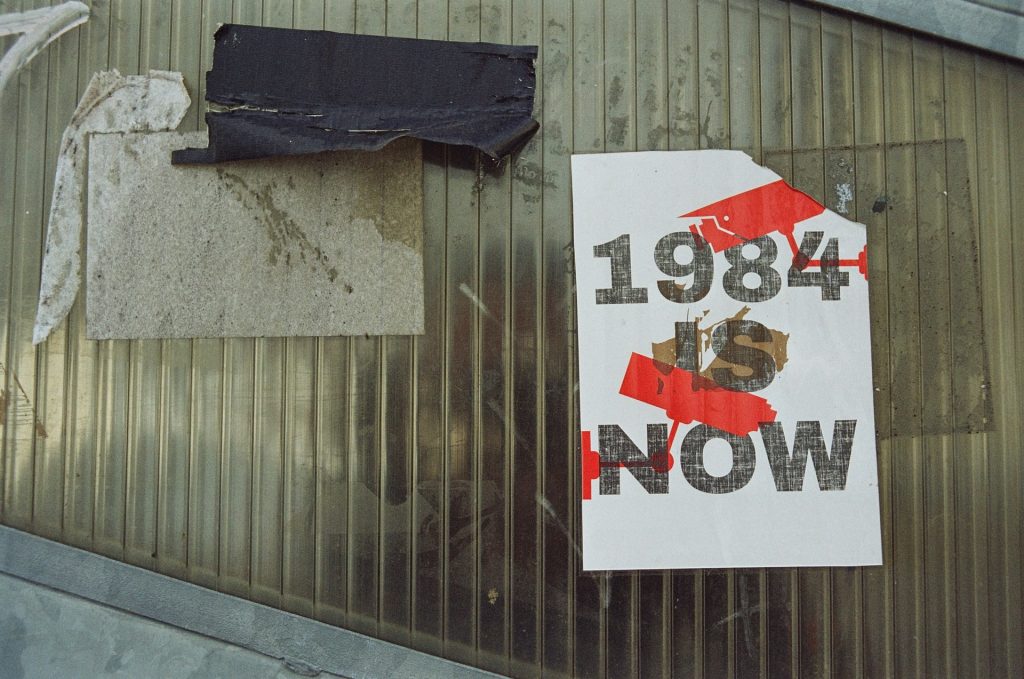
Newspeak? Doublethink? What do all of these words mean? If you need help analysing 1984 by George Orwell, you’ve come to the right place — we’ve got all you need to know with a summary, list of key characters, themes and a 3-step essay analysis guide!
We’ve even got an analysis table and a sample paragraph that’s all free for you to download on 1984.
So, let’s throw back into 1984 (the fictional one of course)!
1984 by George Orwell Summary & Key Messages Key Characters in 1984 Context Themes Explored in 1984 Essay Analysis of 1984
1984 by George Orwell Summary & Key Messages
The politics of oceania.
1984 belongs in the dystopian, science fiction genre as it explores the dangers of corrupted power under a totalitarian regime. Totalitarianism is a government system that dictates how its citizens think, behave and act by constantly keeping an eye on them and carrying out punishments for those who don’t obey. Sounds strict, hey?
Sadly, this is the life of our protagonist, Winston Smith. Winston lives in a nation that resembles London in Oceania, which has been in a war with Eurasia and Eastasia since forever but no one really knows what the war is about. This is because the Party controls its people through rewriting history in the Ministry of Truth, where Winston edits historical records as part of his job.
The Party also invented a new language called “Newspeak” , which eliminates any words associated with rebellion to ensure full subservience of their nation.

Wherever Winston goes, he is bombarded with posters of their omnipresent leader, Big Brother. There are also hidden cameras and microphones that are implanted everywhere by the thought police to monitor every move of its citizens.
It’s a scary place because if you do or say anything wrong, the thought police will capture you and force you into lifelong labour . In this world, people cannot have close friends, cannot date whoever they want and cannot have intimate relationships.
Instead, the people pent up these emotions and channel them into aggressive patriotism for their government which are expressed in two minute hate rallies.
The Start of Winston’s Rebellion
Winston has had enough of the Party and its strict control. He purchases an illegal diary to commit crimethink, where he expresses his own thoughts and feelings about the Party through writing. He also writes about his interest in O’Brien, a member of the Inner Party who he believes could be part of the underground rebellion group called the Brotherhood.
Access 1984 Downloadable Sample Paragraph and Examples of Analysis
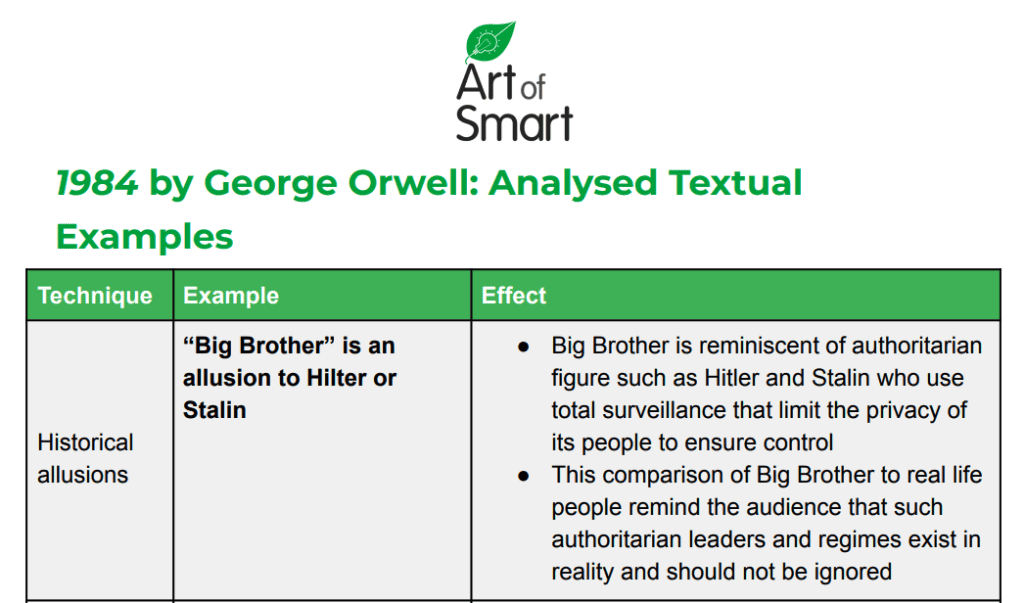
Winston’s and Julia’s Relationship
At work, Winston realises that his historical records were not aligning with his memories . He notices Julia, a young beautiful girl staring at him, and he is afraid that she will turn him into the “thought police”.
However, Julia passes him a note that says “I love you” and they start an affair.
O’Brien’s Betrayal
As their relationship grows more seriously, so does Winston’s hatred for the Party. He and Julia decided to reveal their rebellion to O’Brien, who also appeared to be on their side .
O’Brien welcomes them into the Brotherhood and passed Winston a copy of Emmanuel Goldstein’s book. As Winston starts reading the book, the thought police charge in, arrest Winston and Julia and bring them to the Ministry of Love. Turns out, O’Brien is a snake.
The Party Tortures Winston
At the Ministry of Love, Winston is tortured mercilessly and this makes him confess everything he knows about Julia and the rebellion .
It is then revealed that the government carries out these acts to exercise total power and control over the people of Oceania, to the extent where people not only do things out of fear, but genuinely believe in what they are doing even if it doesn’t make sense.
Winston’s Loss of Individuality
In Room 101, Winston experiences a true Fear Factor episode. The thought police threaten Winston with his ultimate fear, rats that would eat his face off. This caused Winston to scream “Do it to Julia, not me!”, which represents his betrayal to the only person that held value to him.
After this, the thought police let both Winston and Julia go, but the two ex-lovers can no longer look at each other face to face as they are both broken inside. Winston becomes a changed man who does not want to think about rebelling and instead becomes highly supportive of the Party and Big Brother.
Key Characters in 1984
Winston Smith The main protagonist who works under the Ministry of Truth in London, Oceania. His appearance is frail, pensive and intelligent. He hates the Party and its totalitarian system with a desire to revolutionise his current political situation. He can be emotional and idealistic with his goals.
Julia A beautiful young girl who is Winston’s love interest. Julia is sex-positive with an optimistic attitude about the future of the Party. She represents parts of humanity that Winston lacks, such as passive survival, intimacy, intuition and pragmatism.
O’Brien A mysterious leader of the Inner Party who Winston trusts as Winston believes that O’Brien is a member of the legendary rebellion group, the Brotherhood. It is revealed later in the novel that O’Brien is a leader of The Party who has been keeping a close eye on Winston. His betrayal launches us into the inner mechanisms of The Party and its totalitarian rule. O’Brien’s character parallels that of famous dictators in modern history such as Stalin and Hitler, as he is determined to indoctrinate Winston in the name of “purity.”
Big Brother Have you watched the show Big Brother? His character in the show is almost the same as in 1984, except a lot more controlling. In 1984, Big Brother is the most dominating figure in Oceania as he is perceived to be the ruler, although Orwell does not specify whether he really exists or not. Big Brother’s face is plastered among posters, coins and telescreens with the slogan “BIG BROTHER IS WATCHING YOU” so it’s impossible to avoid him anywhere.
Emmanuel Goldstein As the leader of the legendary group of rebels called the Brotherhood, Emmanuel Goldstein is the opposing figure of Big Brother. Although he never appears in the novel, he has had a profound impact on Winston’s hope for the future. He is the most dangerous man in Oceania, according to the Party.
Context in 1984
To understand 1984’s context, we must first understand the author’s personal background to craft a well thought-out essay analysis. This is because the author’s personal and historical experiences do shape the novel and its themes. So, let’s start with Orwell’s schooling days.
If you ever felt suppressed at school, Orwell can definitely relate with you on that. As a “lower-upper-middle class”, Orwell didn’t fit in with his peers and was upset with the restricted routine that schools impose on their students.
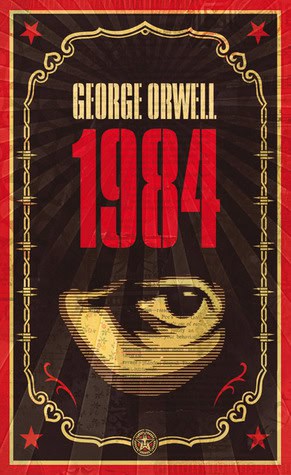
He then went on to become a British Imperial Policeman in Burma where he hated his job as he had to execute strict laws under a political system he didn’t like. After this, he moved to England and became a full-time writer.
Orwell experienced poverty for awhile, and even lived as a coal miner in northern England which caused him to shift from capitalist ideals to democratic socialism. Here are the simplified definitions of the political concepts that influenced Orwell’s beliefs and 1984’s themes:
- Capitalism: An economic system where property is owned and controlled by private actors, rather than by state. As such individuals can control how much they set their prices, instead of leaving it to the government to dictate.
- Democratic Socialism: Unlike capitalism, democratic socialism is an economic system whereby property and products are owned and controlled by the entire society, alongside governments. So, the main difference here is that governments have a say in trade whereas in capitalism, governments do not interfere with private owner’s business.
Orwell was also concerned with the rise of Thatcherism.
In the year 1936, Orwell fought as a socialist in the Spanish Civil War during World War II, where he became familiar with totalitarian systems that are under leaders such as Hitler and Stalin. Although Orwell was passionate about socialism at first, he soon became disillusioned and disappointed with its ideals as Stalin used communism as the foundation of his authoritarian system.
Stalin of the Soviet Union was also an important influence in shaping 1984’s totalitarian regime of Oceania, as Stalin used secret police to force confessions out of enemies through torture alike how the Ministry of Love did with Winston . Like the Party, the Soviet Union also tampered with physical records of people as they imprison and/or eliminate millions of lives.
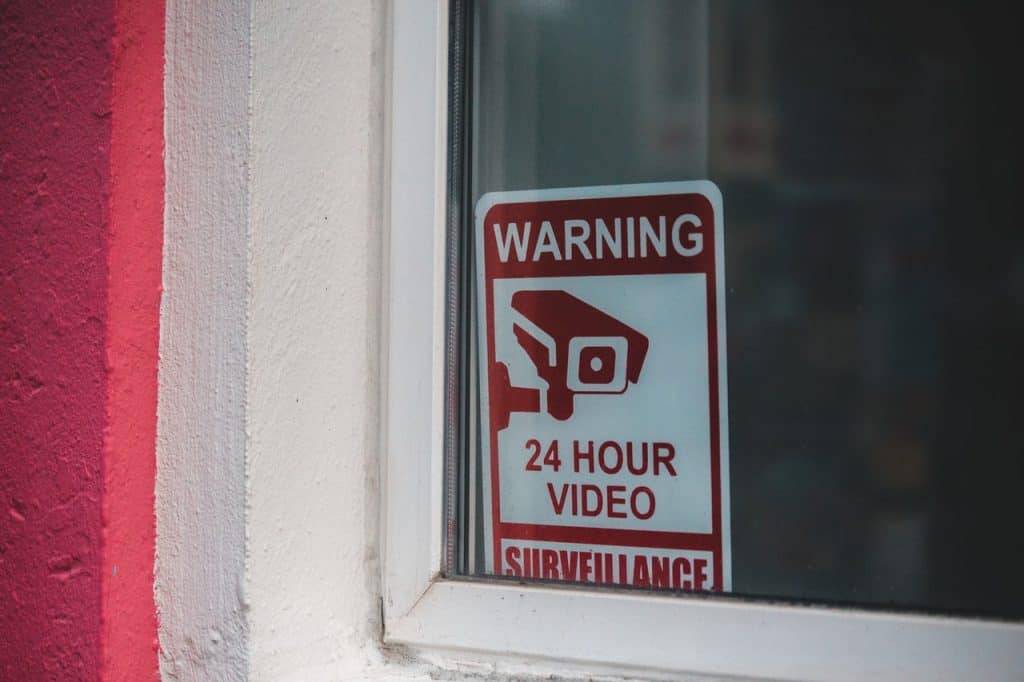
With the rise of the nuclear age and television in 1949, Orwell envisioned a future where everyone would always be monitored through screens in a post-atomic dictatorship . This became a fear that was highly possible when speculated thirty five years into the future.
But as we all know, this did not become true. In the early 1990s, the Cold War ended with the triumph of democracy, as signified by the fall of the Berlin Wall and the dissolution of the Soviet Union.
Even so, Orwell’s 1984 still serves as a precautionary tale against the corruption and abuse of totalitarian regimes, along with a profound insight into the use of language and history to manipulate one’s individuality.
Want more information on George Orwell? Take a look at this biography found via the Orwell Foundation page!
Themes Explored in 1984
To help you get started on your thesis or topic sentence , here are three key themes from 1984 that you can write about in your essay analysis !
The Consequences of Totalitarianism
After experiencing the violence and corruption of totalitarian regimes in Spain and Russia, Orwell wrote 1984 as a warning about the dangers of an authoritarian regime where the government holds the most power. As such, the Party in 1984 administered extreme methods of physical and psychological manipulation to enforce total submission of its people.
Physical control by the Party includes total surveillance of its people to the extent where even a twitch in the face can be enough to warrant an arrest. Morning exercises, called Physical Jerks, are also carried out before long hours at work to tire people out so they don’t have the energy to think beyond the Party’s propaganda.
The Party also uses physical torture to “re-educate” and punish those who rebel against them. It is this physical pain that causes Winston to lose his own individuality and moral beliefs, allowing the Party to infiltrate his mind and dictate his sense of reality.
Meanwhile, the Party also uses psychological tactics to saturate the individual’s mind with propaganda and disable its ability for independent thinking. On top of watching everyone everywhere, the telescreens are also used to indoctrinate (ie. brainwash) people into supporting the Party despite its flaws.

The telescreens also perpetuate slogans such as “BIG BROTHER IS WATCHING YOU” , to remind people that their government is always watching their back so they better behave according to the Party’s standards.
The Party also deems close friendships and conversations with others illegal. So, if you’re itching to spill the tea, your only method of venting your emotions out is through pep rallies, where the Party encourages you to show extreme expressions of hatred to its political enemies. Ultimately, this allows the Party to dictate how and where you should express your emotions, keeping you from expressing your individual feelings, thoughts and opinions.
Here are some quotes that illustrate the perils of totalitarianism:
| Quote | Link to the Consequences of Totalitarianism |
|---|---|
| “Big Brother is Watching You” | This slogan represents how the Party constantly monitors its people and instills psychological fear to enforce total control over its citizens. |
| “We convert him, we capture his inner mind, we reshape him” | This line from O’Brien reveals the Party’s motive of gaining total control over people’s minds by forcing them to forfeit their independent thought and truly believing in whatever the Party wants them to believe in. |
| “You want it to happen to the other person. You don’t give a damn what they suffer. All you care about is yourself.” | This line from Julia as she speaks to Winston about what happened in 101 reveals that the both of them have betrayed one another as a result of the torture they’ve experienced under the Party, which represents their loss of morality and individual values under cruel physical control of authoritarian regimes. |
The Power of Language to Liberate and Control
In 1984, language has the dual capacity to both restrain and facilitate individual expression. This is another key message that Orwell imparts, as he highlights how language can either promote or limit ideas which influence our beliefs, behaviour and identity.
The Party uses Newspeak as a way of controlling the language that its people speak, which in turn dictates the people’s thoughts, actions and personalities (or lack thereof).
By eliminating words that are associated with rebellious thoughts, the Party essentially removes the people’s ability to think of resistance because there are no words to conceive it. With continual edits with Newspeak, the Party inches a step closer to their ultimate goal of total coercion from their people.
Yet, in Winston’s case, he uses language as a vehicle of self-expression as he purchases a diary for himself and writes his everyday thoughts, opinions and feelings into it . By writing in his own words, he is able to build himself an identity with his own passions, goals and perspective.

Sadly, in a world where the government overrules individual expression, Winston’s use of language dwindles, though it is encouraging to see how language can still work to preserve independent thought.
Here are three quotes that can help you get started on this theme:
| Quote | Link to the Consequences of Totalitarianism |
|---|---|
| “WAR IS PEACE FREEDOM IS SLAVERY IGNORANCE IS STRENGTH” | This official slogan of the Party is an example of “doublethink” that is used to instil propaganda and fear, forcing its people to believe anything they say even when it is contradictory and illogical. (eg. Ministry of Truth is where history is rewritten, Ministry of Love is where people are tortured, Ministry of Peace is head of war). |
| “Don’t you see that the whole aim of Newspeak is to narrow the range of thought? In the end we shall make thoughtcrime literally impossible, because there will be no words in which to express it.." | This represents the Party’s use of language to restrain any thought of rebellion against its political campaign and enforce subservience. |
| “Freedom is the freedom to say that two plus two make four. If that is granted, all else follows” | This line from Winston reinforces the power of language to reclaim his perspective of the world moves beyond the indoctrinations from the Party. |
The Importance of Preserving Our Identity and Individualism
What happens if we lose everything that defines us as us?
1984 truly delves into this scary concept as the Party removes everyone’s personal details so they are not able to establish their own identity. For example, even Winston does not know his own age, who his real parents are nor can he trust his own childhood memories as there are no photographs or evidences to help him differentiate between reality and imagination.
Aside from Winston, the rest of Oceania are also denied documents that could give them a sense of individuality and help them differentiate themselves from others . This causes their memories to grow fuzzy, thus making the people of Oceania vulnerable and dependent on the stories that the Party tells them.
In turn, by controlling the present, the Party can re-engineer the past. Simultaneously, by controlling the past, the Party can rationalise its shortcomings and project a perfect government that is far from the truth.
With no recollection of the past, the people of Oceania can no longer stay in touch with their real identities and instead, become identical as they wear the same uniform, drink the same brand of alcohol and more. Yet, Winston builds his own sense of identity through recording his thoughts, experiences and emotions in his diary. This act along with his relationship with Julia symbolises Winston’s declaration of his own independence and identity as a rebel who disagrees with the Party’s system.
Despite this, Winston’s own sense of individuality and identity dissolves after his torturous experience at the Ministry of Love, which transforms him into another member of the Outer Party who blends into the crowd. By asserting a dark vision of humanity’s individualism, Orwell urges audiences in the present to truly value their freedom to express and preserve their identity.
Here are some quotes that are related to this idea which you may find helpful:
| Quote | Link to the Consequences of Totalitarianism |
|---|---|
| “Who controls the past, controls the future: who controls the present controls the past” | This slogan from the Party reveals that by rewriting history, the Party can justify their actions and systems in the present. Alternatively, by controlling the present, they can choose to manipulate history however they like. |
| “What appealed to [Winston] about [the coral paperweight] was not so much its beauty as the air it seemed to possess of belonging to an age quite different to the present one” | This quote from Winston represents his act of rebellion which helps him to assert his own independence in determining what he likes or does not like that are outside of the Party’s influence. |
| “And when memory failed and written records were falsified… the claim of the Party to have improved the conditions of human life had go to be accepted, because there did not exist, and never again could exist.” | This quote represents Winston’s realisation that the Party purposefully erodes people’s memories of the past to disable their sense of identity and gain full control of their sense of self. |
Of course, 1984 also includes other themes that you may be thinking about writing analysis for, such as:
- Rebellion and Patriotism
- Active versus Passive Survival
- The Corrupt Use of Technology
Check out our recommended related text for 1984 .
Essay Analysis: How to Analyse 1984 in 3 Steps
Analysing your text is always the first step to writing an amazing essay! Lots of students make the mistake of jumping right into writing without really understanding what the text is about.
This leads to arguments that only skim the surface of the complex ideas, techniques and elements of the text. So, let’s build a comprehensive thesis through an in-depth analysis of the 1984.
Here are three easy steps that you can use to analyse 1984 and really impress your English teachers!
Step 1: Select your example(s)
1984 is a world of its own with its totalitarian systems, use of foreign words and more. So, we totally understand if you’re feeling lost and don’t know where to begin.
Our piece of advice is to look for examples that come with a technique. Techniques offer you a chance to delve into the text’s underlying meaning, which would help you deepen your analysis and enrich your essay writing.
Find our extensive list of quotes from 1984 by George Orwell!
Here are two quotes that relate to consequences of totalitarian power, which we have picked to help you visualise which examples can provide a deeper meaning:
“Big Brother is Watching You.” “WAR IS PEACE FREEDOM IS SLAVERY IGNORANCE IS STRENGTH”
Step 2: Identify your technique(s)
Getting a good grade in English is more than listing out every technique that you can find in the text. Instead, it’s about finding techniques that allow you to dive deeper into the themes you’re focussing on, while also supporting your argument.
Try to look for techniques that allow you to explain its effects and link to your argument such as symbols, metaphors, connotations, similes and historical allegories . In Orwell’s case, he uses a lot of language techniques such as neologism, where he makes up his own words such as “Doublethink” or “Newspeak”.
For the two quotes above, its three techniques include historical allusion, rhetoric and oxymoron.
If possible, you can look out for a quote that encompasses a few techniques to really pack a punch in your analysis.
Step 3: Write the analysis
Once you’re done collecting your examples and techniques, the next part is writing. You must remember to explain what the effect of the technique is and how it supports your argument. Otherwise, it’s not going to be a cohesive essay if you’re just listing out techniques.
An example of listing out techniques looks like this:
“The rhetoric “Big Brother is Watching You” is also a historical allusion while “War is Peace, Freedom is Slavery and Ignorance is Strength” is oxymoronic.”
Instead, you must elaborate on how each of these techniques link to your argument.
“Big Brother is Watching You” is a rhetoric imposed by the Party to instil psychological fear and submission of the people of Oceania, whereby Orwell uses to warn the dangers of totalitarianism. “Big Brother” is also a historical allusion to Hitler to remind the audience that 1984 is not entirely fictional but a possible future of our reality, urging us to take action against totalitarian regimes with the autonomy we have now.
Meanwhile, the slogan ““WAR IS PEACE, FREEDOM IS SLAVERY, IGNORANCE IS STRENGTH” represents the oxymoronic mentalities that have been indoctrinated into the people of Oceania, highlighting how totalitarian regimes would force its people to think whatever they want their people to think, no matter how illogical it is.
Together, your analysis should look something like:
The Party perpetuates the rhetoric, “Big Brother is Watching You” to instil psychological fear and coercion of the the people of Oceania, which forewarns a lack of individual freedom and private reflection within authoritarian regimes. As “Big Brother” is a historical allusion to Hitler, Orwell reminds the audience that 1984 and its extremist politics is a reality, urging us to defend our independence before it’s forbidden. Furthermore, the slogan “War is Peace, Freedom is Slavery, Ignorance is Strength” embodies the oxymoronic mentalities that the Party indoctrinates into its people, revealing the extreme extent of psychological control an authoritarian regime strives to ensure their power is never questioned, no matter how irrational it is.
Need some help with your essay analysis of other texts aside from 1984?
Check out other texts we’ve created guides for below:
- Romeo and Juliet
- Run Lola Run
- The Meursault Investigation
- In Cold Blood
- To Kill a Mockingbird
- The Book Thief
- The Tempest
- Blade Runner
- Things Fall Apart
- Mrs Dalloway
Are you looking for some extra help with your essay analysis of 1984?
We have an incredible team of tutors and mentors.
We can help you master your essay analysis of 1984 by taking you through the summary, context, key characters and themes. We’ll also help you ace your upcoming English assessments with personalised lessons conducted one-on-one in your home or online!
We’ve supported over 8,000 students over the last 11 years , and on average our students score mark improvements of over 20%!
To find out more and get started with an inspirational tutor and mentor, get in touch today or give us a ring on 1300 267 888!
Kate Lynn Law graduated in 2017 with an all rounders HSC award and an ATAR of 97.65. Passionate about mentoring, she enjoys working with high school students to improve their academic, work and life skills in preparation for the HSC and what comes next. An avid blogger, Kate had administered a creative writing page for over 2000 people since 2013, writing to an international audience since her early teenage years.
- Topics: ✏️ English , ✍️ Learn
Related Articles
Everything you need to know about analysing ‘jasper jones’ for english – summary, context, themes & characters, a comprehensive guide to analysing ‘the book thief’: summary, context, themes & characters, the definitive guide to analysing ‘in cold blood’: summary, context & themes, 45,861 students have a head start....
Get exclusive study content & advice from our team of experts delivered weekly to your inbox!

Looking for English Support?
Discover how we can help you!

We provide services in
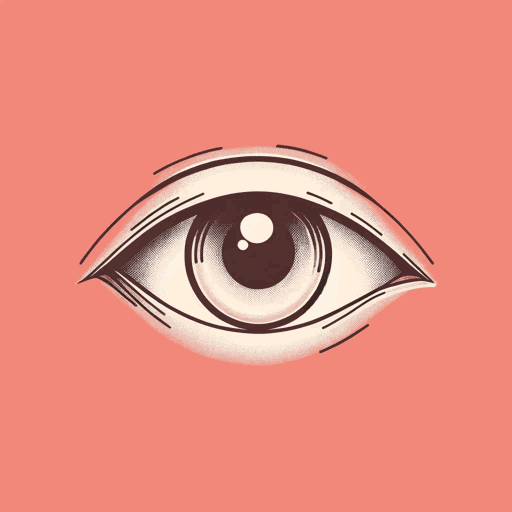
94 pages • 3 hours read
A modern alternative to SparkNotes and CliffsNotes, SuperSummary offers high-quality Study Guides with detailed chapter summaries and analysis of major themes, characters, and more. For select classroom titles, we also provide Teaching Guides with discussion and quiz questions to prompt student engagement.
Chapter Summaries & Analyses
Part 1, Chapters 1-4
Part 1, Chapters 5-8
Part 2, Chapters 1-4
Part 2, Chapters 5-9
Part 3, Chapters 1-Appendix
Character Analysis
Symbols & Motifs
Important Quotes
Essay Topics
Literary Devices
Discussion Questions
How does Orwell establish a dystopian atmosphere early in the novel? Provide examples from the text and discuss how they contribute to the novel’s structure and themes.
What are some important differences between Katharine and Julia? What does each woman represent in the novel?
What hints foreshadow Mr. Charrington’s revelation as a member of the Thought Police? Does Winston let down his guard, or is Mr. Charrington clever in trapping Winston?

Don't Miss Out!
Access Study Guide Now
Related Titles
By George Orwell

Animal Farm

Burmese Days

Coming Up for Air

Down and Out in Paris and London

Homage To Catalonia
Keep the Aspidistra Flying

Politics and the English Language
Shooting an Elephant

Such, Such Were the Joys

The Road to Wigan Pier

Why I Write

Featured Collections
Audio Study Guides
View Collection
Banned Books Week
British Literature
Brothers & Sisters
Fantasy & Science Fiction Books (High...
Goodreads Reading Challenge
Popular Book Club Picks
School Book List Titles
The Best of "Best Book" Lists

George Orwell
Ask litcharts ai: the answer to your questions.
Welcome to the LitCharts study guide on George Orwell's 1984 . Created by the original team behind SparkNotes, LitCharts are the world's best literature guides.
1984: Introduction
1984: plot summary, 1984: detailed summary & analysis, 1984: themes, 1984: quotes, 1984: characters, 1984: symbols, 1984: literary devices, 1984: theme wheel, brief biography of george orwell.
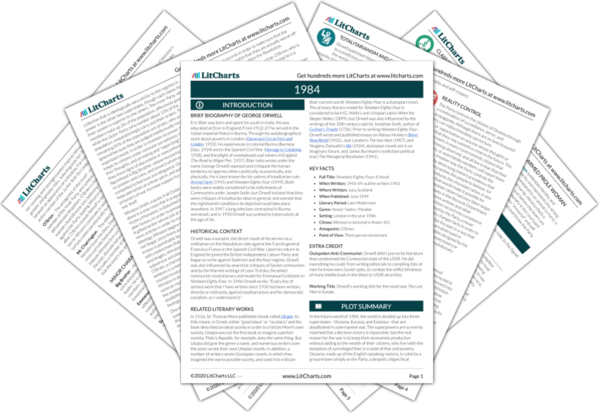
Historical Context of 1984
Other books related to 1984.
- Full Title: Nineteen Eighty-Four: A Novel
- When Written: 1945-49; outline written 1943
- Where Written: Jura, Scotland
- When Published: June 1949
- Literary Period: Late Modernism
- Genre: Novel / Satire / Parable
- Setting: London in the year 1984
- Climax: Winston is tortured in Room 101
- Antagonist: O'Brien
- Point of View: Third-Person Limited
Extra Credit for 1984
Outspoken Anti-Communist. Orwell didn't just write literature that condemned the Communist state of the USSR. He did everything he could, from writing editorials to compiling lists of men he knew were Soviet spies, to combat the willful blindness of many intellectuals in the West to USSR atrocities.
Working Title. Orwell's working title for the novel was The Last Man in Europe .

by George Orwell
1984 themes, totalitarianism.
In writing 1984 , Orwell's main goal was to warn of the serious danger totalitarianism poses to society. He goes to great lengths to demonstrate the terrifying degree of power and control a totalitarian regime can acquire and maintain. In such regimes, notions of personal rights and freedoms and individual thought are pulverized under the all-powerful hand of the government. Orwell was a Socialist and believed strongly in the potential for rebellion to advance society, yet too often he witnessed such rebellions go wrong and develop into totalitarian rule. Specifically, Orwell saw such developments during his time in Spain and in Russia, where he witnessed the rise of communism and the accompanying destruction of civil liberties, honest government, and economic strength.
During a time when much of the Western world was lauding communism as a step towards human progress in the development of equality in government, Orwell clearly and definitively spoke out against the practice. In 1984 , Orwell presents a dystopia, or in other words, the perfect totalitarian state. In composing this novel, Orwell gave the world a glimpse of what the embrace of communism might lead to if allowed to proceed unchecked. The Party is unflawed in its universal control over society, as evidenced by its ability to break even an independent thinker such as Winston, and has mastered every aspect of psychological control, largely through utilizing technological developments (allowing for inventions such as the telescreen) to their advantage. In ending the novel with Winston defeated in every sense of the term, Orwell clearly suggests that there is no hope for quelling the expansion or growth of such a perfectly established regime. And, more importantly, Orwell warns that at the time, this outcome was within the realm of possibility as long as the world supported and embraced communism.
A major factor in the Party's rule over Oceania lies in its extremely well organized and effective propaganda machine. The Ministry of Truth, which is ironically where Winston works, is responsible for disseminating all Party publications and information. All figures and facts come from the Ministry of Truth, and all are dictated by the Party. In other words, the Party chooses exactly what to tell the public, regardless of what is accurate. The effectiveness of this propaganda machine, which constantly corrects old material to reflect the Party's current position on any subject ranging from chocolate rations to the loyalty of a specific individual, allows the Party to completely dominate the range of information disseminated to the public. Therefore, as O'Brien notes, the machine determines what constitutes reality.
In addition to the massive amounts of doctored information the Party disseminates to the public, there are also basic forms of propaganda, such as the Two Minutes Hate, Hate Week, posters of Big Brother , and required daily participation in the Physical Jerks. The Party uses literally every waking opportunity to instill its ideals into its citizens, and is strikingly successful in achieving its goal of total loyalty. In 1984 we see the vigor and loyalty such propaganda inspires in the citizens. The citizens of Oceania are filled with hatred for the country's stated enemies, but this hatred is easily re-directed if the enemy happens to change. This efficiency is quite disturbing. Orwell's presentation of the power of propaganda significantly supports his warning against totalitarianism. If propaganda rules all information, it is impossible to have any grasp on reality. The world is as the Party defines it.

Love/Sexuality
The Party works to quell all physical sensations of love, and depersonalizes sex to the point where it is referred to as a "duty to the Party" (for the purposes of procreation). Some Party organizations even advocate complete abstinence and procreation only through artificial insemination. Winston suffers the Party's removal of personal fulfillment or enjoyment in relationships in his failed marriage with Katharine . Later, when he finds Julia , Winston relishes the freedom of being able to love someone in a physical and emotional way. So much of Winston's seeming rebellion turns out to be guided and influenced by the Party ( Mr. Charrington , O'Brien, the Brotherhood), but his relationship with Julia is not. Winston is only able to rebel against the Party through his affair with Julia, even though this love is destroyed in the end.
Orwell's discussion of love is not only relegated to romantic love. Through Winston's memories of his mother and the contrast between how she cared for him and his sister and the average Party family is striking. Winston's mother deeply loved her children and did all she could to protect them during the aftermath of the Revolution and the Party's rise to power. In Winston's time, the Party has removed such interfamilial loyalty, demanding that all love and loyalty be reserved for Big Brother and the Party. In this way, the bonds between parents and children are broken. Even worse, children commonly report their parents to the Thought Police, placing the Party above the lives of their mother and father. The Party's eventual goal is to destroy the family unit entirely and have all children raised in Party facilities. The Party has no room for love, unless that love is directed with full force at Big Brother and Oceania.
Independence/Identity
Through its effective psychological manipulation tactics, the Party destroys all sense of independence and individuality. Everyone wears the same clothes, eats the same food, and lives in the same grungy apartments. Life is uniform and orderly. No one can stand out, and no one can be unique. To have an independent thought borders on the criminal. For this reason, writing such as Winston does in his diary has been outlawed. People are only permitted to think what the Party tells them to think, which leads to what Syme refers to as "duckspeak." Independent thought can be dangerous, as it might lead to rebellion.
This theme comes to a head during Winston's torture, when Winston argues that he is a man, and because he is a man O'Brien cannot tell him what he thinks. O'Brien counters that if Winston is a man, he is the last man on earth. Moreover, O'Brien suggests that this independence is evidence of insanity. O'Brien's view represents the purity of a totalitarian regime, in that independent thought must be destroyed to promote the needs and goals of the Party. Winston and Julia's downfall occurs because they believe they are special. Their arrest and torture, however, breaks this spirit. Once again, through this ultimate loss of individual thought, we witness Orwell's warning against embracing any version of totalitarian rule.
Songs appear throughout the novel, most often when Winston is reflecting on the state of the world. Music appears to inspire Winston and allows him to see beauty and simplicity in an otherwise violent, ugly, and frightening world. He sees a powerful sense of tragedy in "Under the spreading Chestnut Tree," hope for a brighter future in the beautiful thrush song, respect for the true, untouchable past in the "St. Clement's Dane" rhyme, and freedom and hope in the passion with which the prole woman sings while hanging her laundry. Below, listed in chronological order are the musical events that occur in the novel.
Winston describes sitting in the Chestnut Tree Cafe, observing the clearly beaten, defeated, and tragically sad Jones, Aaronson and Rutherford , while the song "Under the spreading Chestnut Tree, I sold you and you sold me" plays over the telescreen. The song seems to reflect the broken spirits of these three men, who were once Inner Party members and now have lost everything.
Mr. Charrington teaches Winston the rhyme that begins "Oranges and lemons say the bells of St. Clement's," which is a vestige of the past. Throughout the novel, Winston holds on to this rhyme and tries to discover its entirety. He succeeds, with the help of Julia, who remembers a few more lines than Mr. Charrington, and O'Brien, who finishes the poem for Winston.
Julia and Winston are in the Golden Country, beginning their affair. As they stand next to each other surveying the landscape, a small thrush begins to sing next to them. Winston is taken in by the bird's boundless freedom and wonders what makes him sing so beautifully. To Winston, the bird's song represents all he longs for in life. It is the exact opposite of the Party.
Winston hears the prole woman in the yard behind Mr. Charrington's house sing while she works. She belts out the tune without any hesitation, throwing herself into the simple music with a passion Winston reveres.
Winston tells Julia of the poem Mr. Charrington taught him, and she adds two verses. Her grandfather taught her the rhyme when she was young, and Winston is elated to learn the next few lines of the piece. This cooperation reveals a strong bond between Winston and Julia.
Winston discusses the Hate Song the Party created solely for the Hate Week celebration. This is the only time we hear of a song created purely for negative means. Winston notes that the Hate Song is not as popular among the proles as some of the more simple tunes the Ministry of Truth has produced for them.
O'Brien completes Mr. Charrington's rhyme, and Winston is immensely satisfied to finally know the complete piece. He feels that gaining the last puzzle piece from O'Brien symbolically represents their bond in rebelling against the Party and pursuing a future steeped in freedom.
Winston again hears the prole woman singing passionately while doing her wash and reflects on the primitivism in song. Winston thinks about the millions of people around the world, just like this woman, who find such pleasure, power and freedom in music and are able to embrace it in their lives. He is arrested immediately after this brief scene, which fulfills the last line of the "St. Clement's Dane" song, "Here comes a chopper to chop off your head!"
Winston sits in the Chestnut Tree Cafe, just as Jones, Aaronson and Rutherford once did. He hears the same song he heard when watching those three men, "Under the spreading Chestnut Tree, I sold you and you sold me." Here, the song speaks to the destruction of Winston's independence, and his newly discovered love for Big Brother.
The Party is fueled by loyalty, and thus demands that its citizens support any and all actions it takes in pursuing a greater Oceania. For the Party, loyalty means accepting without question or hesitation. Ironically, when Winston pledges his loyalty to the Brotherhood, he also agrees to accept the goals and requirements of the Brotherhood without question or hesitation. Winston agrees to do anything the Brotherhood requires, even if that means murdering innocents. However, Winston is also loyal to Julia, and refuses to be separated from her forever. This split loyalty is what separates Winston from the other Party members. Party members are loyal to the Party, Big Brother, and Oceania alone. Personal relationships are of no importance.
While in the Ministry of Love, O'Brien notes this weakness in Winston's mind and effectively removes it. Through painful physical torture, O'Brien first teaches Winston that the Party's perspective is the accurate perspective. Next, by threatening him with carnivorous rats, O'Brien breaks Winston's loyalty to Julia. In the last scene of the novel, Winston finally comes to love Big Brother, and his transition from split loyalties to a greater single loyalty to the Party is complete.
Poverty vs. Wealth
Oceanian society presents a clear dichotomy in living conditions. The small Inner Party lives luxuriously, with servants and lush, well-furnished apartments. Party members, on the other hand, live in run-down single-room apartments with no amenities and low-quality, tasteless food. The proles live in absolute poverty. The chasm between poverty and wealth in the novel is striking, and is most noticeable during Winston's forays into prole society. The buildings the proles live in are decaying, and the city of London is filled with bombed-out ruins. While the Inner Party comforts itself with luxury, the citizens of Oceania suffer, getting by with the bare minimum in a dying city.
Orwell presents this dichotomy to demonstrate how totalitarian societies promote the wealth of the ruling regime while decreasing the quality of life for all other members of society. Such governments often tout their hopes for establishing an equal society when in reality the separation between their living conditions and those of the citizens is vast. Winston looks out on the city of London and sees a dying world. Meanwhile, O'Brien looks out on the city of London and sees a society trapped in a single moment in time, defined and controlled by the Party.
As previously noted, technology is an extremely important tool that the Party uses to maintain control over its citizens. Without telescreens, the Thought Police would not be nearly as effective, and propaganda would not be so widespread. The constant supervision of the telescreen effectively imprisons citizens of Oceania in their daily lives: they are always under observation.
Ironically, other areas of technological development are strikingly stagnant. For example, the printing machines in the Ministry of Truth are still quite basic, and each superstate continues to build the same bombs that were used decades before. Scientific progress has halted, except where it serves the Party's goals (such as in artificial insemination or new methods for psychological manipulation). In the world of Oceania there is no such as thing as progress for the sake of progress; there is only power for the sake of power. When technological developments serve this power, they are encouraged. When they do not, they are stopped.
Newspeak plays an extremely important role in Oceanian society and in the Party's control over its population. As Syme says, Newspeak reduces and limits the number of words in the English language, and removes words used to describe rebellion or independence (with the ultimate goal being to remove citizens' ability to think anti-Party thoughts). Interestingly, the Party works to form a language around itself rather than naturally accepting and assuming the language of the people that make up the country. In this way, language is used as yet another mechanism of mind control.
Removing a nation's original language serves to reduce the importance of a nation's past. Languages develop over centuries, and are deeply intertwined with culture and history. Redefining and forcing a language on a population, as was often done in the postcolonial era, denies that society its individuality. The Party meets this goal with great efficiency.

1984 Questions and Answers
The Question and Answer section for 1984 is a great resource to ask questions, find answers, and discuss the novel.
Describe O’Briens apartment and lifestyle. How do they differ from Winston’s?
From the text:
It was only on very rare occasions that one saw inside the dwelling-places of the Inner Party, or even penetrated into the quarter of the town where they lived. The whole atmosphere of the huge block of flats, the richness and...
What was the result of Washington exam
Sorry, I'm not sure what you are asking here.
how is one put into the inner or outer party in the book 1984
The Outer Party is a huge government bureaucracy. They hold positions of trust but are largely responsible for keeping the totalitarian structure of Big Brother functional. The Outer Party numbers around 18 to 19 percent of the population and the...
Study Guide for 1984
1984 study guide contains a biography of George Orwell, literature essays, quiz questions, major themes, characters, and a full summary and analysis.
- 1984 Summary
- Character List
Essays for 1984
1984 essays are academic essays for citation. These papers were written primarily by students and provide critical analysis of 1984 by George Orwell.
- The Reflection of George Orwell
- Totalitarian Collectivism in 1984, or, Big Brother Loves You
- Sex as Rebellion
- Class Ties: The Dealings of Human Nature Depicted through Social Classes in 1984
- 1984: The Ultimate Parody of the Utopian World
Lesson Plan for 1984
- About the Author
- Study Objectives
- Common Core Standards
- Introduction to 1984
- Relationship to Other Books
- Bringing in Technology
- Notes to the Teacher
- Related Links
- 1984 Bibliography
Wikipedia Entries for 1984
- Introduction
- Writing and publication
Introduction of 1984
Summary of 1984, major themes in 1984, major characters in 1984, writing style 1984, analysis of literary devices in 1984, related posts:, post navigation.

1984 Essay Topics
Our activity
Finished orders
Professional writers
Writers online now
Operators are online
Of 5 average writers' score
One of the most iconic books of the 21st century, George Orwell’s 1984 has long been a staple of English Language classrooms for many years. The novel was a dystopian story by writer George Orwell and was published in June 1949. Most of the themes in the novel are about the risk of government, totalitarianism and repressive regimes of all people, colours and creeds within society. The novel is set out in a dystopian future world in 1984 where much of it has fallen victim to oppressive government surveillance, perpetual war, propaganda and an extreme form of communism.
Throughout the novel, the reader is taken on a journey throughout airstrip one (Great Britain) which has become the head of state in the province called Oceania. Everything is ruled by ‘the Party’ who carry out their oppressive rule along with the thought police, a sub-branch of government that persecute any independent or individual thoughts that citizens may have. The leader of the party is something or someone called Big Brother , therefore the novel is about a cult of personality. Nobody even knows who or what Big Brother is or if it exists. The main protagonists, Winston Smith, is a party member who is diligent, intelligent and a skilful worker, however, he secretly despises the party and everything that it stands for. Smith tries to rebel against Big Brother and enters an exciting and forbidden relationship with his friend Julia. The novel takes us on a journey of hiding, running away and defying the government, with some pretty dire consequences for the characters involved.
There are numerous 1984 essay themes that one can write about and used to think of a topic. Let’s take a look at some of the major themes in the novel.
Totalitarian rule – this is a major theme and presents the kind of government that is unknown to the public. It is a warning to people to believe in all of the lies presented by the government. There is no actual proof of Big Brother throughout the novel, gets the party still manages to exercise control over their citizens.
Subverted reality – most people live in poverty within the novel and many people work against each other. There are spies everywhere and people are actually even told not to enjoy a life of love, only pledge their allegiance to the party. Reality is certainly subverted.
Propaganda – the novel shows how propaganda is used throughout to control its citizens. All well presents this vein through the vehicle of the Ministry of truth, an organisation part of Oceania. All throughout the novel, we are shown how the government uses propaganda time and time again to spread their message. We see slogans such as ‘Big Brother is watching’ everywhere.
Subversion of love the novel paints a dismal picture of how people are not to love each other according to the party. Everything should be a duty to the party and this really plays on people’s minds.
Identity – the loss of identity is a striking theme in the novel. Orwell shows that totalitarianism is able to rip people off their individualism and identity.
Loyalty – political loyalty is all so evident throughout 1984. Winston Smith is an employee that questions politics, however, he does still remain loyal to his job. Everyone in society has to remain loyal to Big Brother otherwise there will be major repercussions.
Class systems – a very prominent theme in the novel is that of class. One can see how Oceania is subdivided into separate classes. The inner party are the elites who have luxury lifestyles and servants around them. Ordinary class members such as Smith live in small apartments and have no permission to enjoy any familial or conjugal life. The poor class live in no-go areas where they are constantly bombarded with propaganda in order to subvert their minds to believe anything as truth. The party has complete control over the class.
The control of information – throughout Oceania, there is only one party and one leader called Big Brother. Everything is completely controlled, from the broadcast to rewriting history. Everything is done with Big Brother and the totalitarian regime in mind. You can see how Winston Smith has a very hard time and why he is struggling in his work.
Technology – the writer shows how technology is used to govern people and subvert their minds. Throughout the novel, the audience is presented with tales that involve terror screens and strange apparatuses as primary tools for controlling the public. There is even torture technology, especially in room 101.
Language – the abuse and the use of language is an important theme throughout 1984. The audience is shown how language is constantly used to exert physical and mental control over citizens. The party employs language and even has its own language called Newspeak which is designed to further harm people and control them.
Check Our Samples
Argumentative Essay
New Technology: Beneficial or Dangerous?
Academic level: Bachelor
Subject: Communication
Paper format: MLA
Corporate Social Responsibility
Subject: Management
Paper format: Harvard
Master’s Prepared Nurse Interview
Academic level: Master
Paper format: APA
Research Paper
The Maya Tribe
Academic level: Undergraduate
Subject: History
Now that we have touched on the themes, let’s have a look at various 1984 essay topics that you may find useful. With all of these topics, have a look and see what you would be interested in writing. You may want to take one of the topics without rephrasing or you can use them to formulate your own ideas. Let’s take a look at all the great topics and 1984 essay ideas that you can use!
Compare and contrast topics
Compare 1984 and Kite Runner – what are the different themes?
Compare and contrast 1984 with Huckleberry Finn. How does reading 1984 help understand all of the fields in Huckleberry Finn?
Make comparisons and contrast between George Orwell’s piece and Communist party in China. Are there some differences and similarities?
Compare 1984 with the movie, the lives of others. What kind of similarities are there?
What differences in technology are there between 1984 and V for Vendetta?
How does Brave New World by Aldous Huxley and 1984 share point about Marxism?
Compare and contrast 1984 with other dystopian novels.
How are the male characters portrayed in 1984 and in JG Ballard’s high-rise?
Compare and contrast 1984 with a work of JG Ballard.
How does crash by JG Ballard and George Orwell’s 1984 share common themes?
How does society become depicted in 1984 and how is it different from the society depicted in Panopticism by forecourt?
What kind of comparisons and contrasts can one make about 1984 and North Korea?
How are female characters betrayed in 1984 and in Brave New World?
What are some of the ways that the themes can be compared and contrasted between 1984 and The Giver by Lois Lowry?
What are some of the differences between the Shawshank redemption in 1984?
Compare and contrast the movie hunger games and the dystopian novel 1984. Think about all of the characters, ideas, themes and style that the story has been told in. How do you both novels differ in the way that they portray dystopia?
Are there any similarities between Children of Men and 1984?
What are the main ideas and connections between the Shawshank redemption and Orwell’s 1984?
Compare and contrast 1984 with the popular movie, the Truman show. What are the main differences between the plot, motifs, characters and themes?
How does the movie, the propaganda game, differ from 1984?
Is dictatorship amongst us at the moment? Compare current society to the society in 1984. Are there any parallels?
Are there any similarities between Lord of the flies and Orwell’s 1984? Can you see any connections between either of these books?
How does the book into the wild compare with 1984? Are there any similar themes?
Fritz Lang’s Metropolis and almost 1984 compare and contrast.
Compare the ways that police brutality today is similar to how it is in 1984.
Analytical topics
How can one compare the book, 1984, to society today? What countries have features that Oceania has in Orwell’s dystopian novel?
How have any of Orwell’s political views had an influence on his work?
The theme of subversion of love in 1984.
Analyse the setting, theme, and all the ways that the author is able to depict characters within the context of political predictions in 1984.
Make an analysis of propaganda use in 1984. How does the government achieve its goals through the use of sponsorship, technology and media?
What role does the Ministry of truth play in the novel? What is the government able to achieve by controlling the truth?
Are the Ministry of truth able to rewrite history successfully?
The theme of totalitarianism in 1984.
What kind of influence does Big Brother have on society?
What does Big Brother say about today’s surveillance and privacy?
What role does Newspeak have in 1984? How can we see language change throughout the story?
In the room above Charrington’s shop, what significance does this have on the story and Winston’s character?
What parallels can we draw between 1984 and racial profiling today
Why have the upper class in 1984 only allowed intellectual freedom to a certain number of people?
The theme of class in 1984.
What kind of dystopia and symbolism is used in 1984 to convey the message?
How has oppression and fear continue to thrive in today’s society? What parallels can you see between today and 1984?
What parallels are there between Carl Jung’s philosophy and the ideas in 1984?
Our Winston and Julia complimentary carriages?
The theme of the subversion of society throughout the novel.
Discuss the theme of technology in 1984.
What are the different views between Winston and Julia on morality, politics, ethics and history?
Make an analysis of chapter 11 in 1984. What kind of serious repercussions will there be for Winston and Julia?
What colour parallels can we draw between consumers and to and 1984 society?
How has 1984 betrayed the theme of alienation?
Argumentative topics
Can a society survive if it follows the rules of society in 1984?
1984 paint a picture of totalitarianism today. Discuss.
Many of today’s world leaders such as Trump and Marie Le Pen are much like the higher-ups in 1984.
Dehumanisation which is a theme in 1984 is often used today to subvert citizens.
Does 1984 help us to understand more about the popularity of nationalism in the 21st century?
What powers do common people have in 1984? How does Winston think about the higher-ups?
Winston is definitely against Big Brother throughout the whole novel. Discuss.
1984 can teach us many lessons about today’s society. Discuss.
The significance of memory in 1984.
Which parts of 1984 have come true in today’s reality? Were there any things that were exaggerated? Could any things in 1984 not become true in the future?
The social hierarchy of Oceania how does this strange hierarchy come to support the party and all of their goals?

Home — Essay Samples — Literature — 1984 — 1984 Character Analysis
1984 Character Analysis
- Categories: 1984
About this sample

Words: 618 |
Published: Mar 13, 2024
Words: 618 | Page: 1 | 4 min read
Table of contents
Winston smith is introduced to the reader as a disillusioned and discontented member of the party, one of the most intriguing aspects of winston's character is his complex relationship with julia, as the novel progresses, winston's internal struggles and external conflicts come to a head, in conclusion, winston smith emerges as a complex and compelling character whose journey serves as a powerful allegory for the dangers of totalitarianism and the enduring human desire for freedom.

Cite this Essay
Let us write you an essay from scratch
- 450+ experts on 30 subjects ready to help
- Custom essay delivered in as few as 3 hours
Get high-quality help

Dr. Karlyna PhD
Verified writer
- Expert in: Literature

+ 120 experts online
By clicking “Check Writers’ Offers”, you agree to our terms of service and privacy policy . We’ll occasionally send you promo and account related email
No need to pay just yet!
Related Essays
3 pages / 1411 words
2 pages / 1055 words
2 pages / 979 words
6 pages / 2729 words
Remember! This is just a sample.
You can get your custom paper by one of our expert writers.
121 writers online
Still can’t find what you need?
Browse our vast selection of original essay samples, each expertly formatted and styled
Related Essays on 1984
In George Orwell's dystopian novel "1984," the totalitarian regime of Oceania controls every aspect of its citizens' lives, from their thoughts and actions to their very existence. This nightmarish depiction of a society ruled [...]
Set in a future society where the government, known as the Party, exercises complete control over every aspect of its citizens' lives, 1984 paints a bleak picture of a world where individuality is a threat to the ruling regime. [...]
In dystopian novel 1984, the theme of conformity is prevalent throughout the narrative. The society depicted in the novel is one in which conformity is enforced by the ruling party, and individuality is suppressed. The [...]
George Orwell's 1984 is a dystopian novel that explores the themes of totalitarianism, surveillance, and the loss of individuality. One of the key themes in the novel is the absence of tranquility in the lives of the characters, [...]
1984, a novel by George Orwell, takes you down a trip through a dystopian version of Oceania where two protagonists try to keep their illegal love affairs secret from different ways the party members try to spy on them. The two [...]
Immense power and control, that is what every government wants. Orwell portrayed this in his novel 1984 through the Party, which manipulated the people through striking fear, consistent surveillance, and deprivation of [...]
Related Topics
By clicking “Send”, you agree to our Terms of service and Privacy statement . We will occasionally send you account related emails.
Where do you want us to send this sample?
By clicking “Continue”, you agree to our terms of service and privacy policy.
Be careful. This essay is not unique
This essay was donated by a student and is likely to have been used and submitted before
Download this Sample
Free samples may contain mistakes and not unique parts
Sorry, we could not paraphrase this essay. Our professional writers can rewrite it and get you a unique paper.
Please check your inbox.
We can write you a custom essay that will follow your exact instructions and meet the deadlines. Let's fix your grades together!
Get Your Personalized Essay in 3 Hours or Less!
We use cookies to personalyze your web-site experience. By continuing we’ll assume you board with our cookie policy .
- Instructions Followed To The Letter
- Deadlines Met At Every Stage
- Unique And Plagiarism Free
1984 by George Orwell Essay Topics & Ideas
Use our topics suggestions to impress your reader.
- Argumentative 1984 Essay Topics
- 1984 Compare and Contrast Essay Topics
1984 Literary Analysis Essay Topics
Essay examples on this topic.
Written in the mid-nineteenth century, this story has not lost its popularity to this day. It conquers more and more hearts, captivates readers, and encourages them to look into the mystery of love. Jane Eyre is an orphan who was renounced by her aunt when she was raised in an orphanage. Edward Rochester is a wealthy English aristocrat who owned two large, albeit gloomy-looking estates, Thornfield Hall and Ferndin.
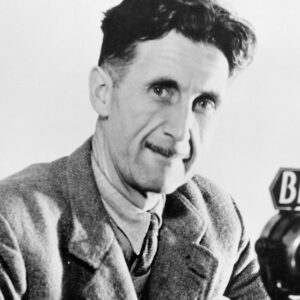
The pseudonym George Orwell appeared when he published his first book, Down and Out in Paris and London, in 1934.
Both Jane and Edward are looking for their happiness. She is in a small world, which seems to her infinitely wide, and he – in a wide, but, in his opinion, infinitely small. One day, the characters meet, and then a sincere, passionate feeling flares up between them, which changes their destinies and makes both the gloomy Thornfield Hall and the even gloomier Ferndin startle.
How to Choose Essay Topic on 1984?
First of all, you need to read the book carefully and find out what the author’s main idea is. Then you can divide it into several parts and make a list of them.
You can also do some research and find out more about the subject that interests you. If you have already chosen a topic, then write down all the information about it in one place so that you don’t forget anything important.
Once you’ve found out everything about your topic, start writing an outline for your essay. This will help you stay focused on what you should write about in each paragraph as well as how many paragraphs there should be in total (usually 3-4).
Tips on How to Write 1984 Essay
1984 is a novel that was written by George Orwell in 1949. It is a dystopian novel, meaning that it describes a society that has become very bad. In this essay, we will discuss 5 tips on how to write 1984 essay.
- First, an introduction should be written in order to give an overview of what the essay will be about and why it is important. The introduction should make the reader interested in reading more about the topic.
- Second, use specific examples from the book to support your points about what you think happens in the book and why it happens.
- Third, describe any historical context that helps explain events or characters’ motivations or actions in the book; this will help readers understand them better because they’ll learn something new about history or culture while reading 1984.
- Fourthly, draw comparisons between 1984 and other works (such as other novels or films) that are similar in theme or structure so readers can see how 1984 compares with them; this will also help readers understand what makes 1984 unique among these works so they can appreciate its greatness even more!
- Fifthly (and lastly), end with a conclusion summarizing what you’ve written about so far and adding any final thoughts/reflections on your topic before closing out with your
✒️ Argumentative 1984 Essay Topics
- 1984 A Bleak Prediction Of the Future
- Propaganda and Surveillance In 1984
- 1984 Human Drives Desire For Power
- An anti-Hero in George Orwell’s 1984
- Looking to the Future 1984
- Examples Of Marxism In 1984
- The vision of Society In 1984
- Winston’S Transformation From “1984” By George Orwell
- Does the Technology of Orwell’s 1984 Really Exist
- 1984 and the Power of Technology
- “Totalitarianism” in 1984
- Utopia, Dystopia, and the Middle Class in George Orwell’s 1984
- “Big Brother” Can Watch Us
- So Are We Living in 1984?
- Creating Society in Orwell’s 1984
- What Orwell says to us about America today
- Justice in George Orwell’s 1984
Popular Questions

✨ Best 1984 Topic Ideas & Essay Examples
- Orwell’s Literary Technique in 1984 Orwell’s Literary Technique in 1984 Often, people and groups, in an attempt to create a better, more perfect, society, end up creating just the opposite. This opposite is termed a dystopian society and is the subject of George Orwell’s novel 1984. ….
- Writing assignment 1984 Over the past couple of years organizations have been identifying the link of HARM with organizational treated in order to develop a strategic approach to HARM and to also offer an understanding of how single country or domestic human resource ….
- Vision of Society in 1984 The empirical method of thought, on which all the scientific achievements of the past were founded, is opposed to the most fundamental principles of Ingsoc. (Emmanuel Goldstein in The Theory and Practice of Oligarchical Collectivism, ch.3). Discuss ….
- Portrayal of a Bleak Future in 1984 and IQ84 To what extent is this true of your prescribed text and one other related text of your choosing? In many variations of futuristic texts, a common portrayal of the future is a bleak one. This is an expression of concert for current issues that may ….
- Harrison Bergeron vs 1984 Harrison Bergeron and 1984 were both based on a similar concept. This concept is creating peace by limiting and controlling the population. In George Orwell s 1984, it was done through brainwashing and doublethink. In Kurt Vonnegut s Harrison ….
- Analysis of 1984 and Big Brother 1984 shows how our lives will not be as secret as they are now. Oceania has noprivacy and America is turning into that. In some ways America already is likeOceania. There are many elements in the book to compare with aspects in Americansociety today…..
- Alienation in 1984 In 1984 In the novel 1984 by George Orwell there are many causes which lead to Winston Smith’s alienation. Winston lives in the dystopian society known as Oceania, which is controlled by the “Party” and a dictator named “Big Brother. ” “Big Brother” ….
- Orwell’s 1984 as an Anti-Utopian Novel 1984 as an Anti-Utopian Novel A utopia is an ideal or perfect community. While some writers have created fictional places that embody their idealssocieties, other writers have written satires that ridicule existing conditions ofsociety, or anti-….
- 1984 Is a Dystopian Novel Written by George Orwell 1984 is a dystopian novel written by George Orwell that depicts a world divided into three massive countries, Oceania, Eurasia, and Eastasia. One of these countries, Oceania is ruled by an oppressive character called, Big Brother. Big Brother is the ….
- 1984 George Orwell Book Summary Jacky Zou Book Summary and Analysis 1984 George Orwell In 1984 by George Orwell, Winston Smith, a low-ranking member of the Party in London located in the nation of Oceania, faces a life of oppression and control. The Party watches Winston and ….
- Semiotic Analysis of Mac 1984 Tvc They are marching through a long corridor and are wearing almost prison-style uniforms. The corridor has TV’s installed after every few steps and it seems the group is being taken to a large auditorium where they are addressed through a gigantic ….
- Summary On a Cold Day in April of 1984 Summary On a cold day in April of 1984, a man named Winston Smith returns to his home, a dilapidated apartment building called Victory Mansions. Thin, frail, and thirty-nine years old, it is painful for him to trudge up the stairs because he has a ….
- Gattaca and 1984 Comparitive Study How has the comparative study of 1984 and Gattaca offered insights into ideas of control and freedom. Control and freedom are both heavily universal aspects to the societies of the late 1900s. The ideas of control and freedom are presented in ….
- George Orwell’s Political and Social Criticism in 1984 “There must be something in books, something we can’t imagine, to make a woman stay in a burning house; there must be something there.” According to Ray Bradbury, “You don’t stay for nothing.” It is curious to think that a single work of art, a ….
- Social Relationships in the Novel ‘1984’ The Relation of Certain Social Groups From the Novel ‘1984’ With Real Social Groups. The lower working class. In a totalitarian environment, they can be best described as the group of people without a voice, a group that has to live according to the ….
✍ 1984 Compare and Contrast Essay Topics
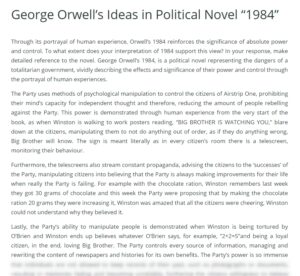
- 1984 Compared to Cults
- A Comparison Between “V For Vendetta” and “1984”
- Compare and Contrast Themes Of Brave New World and 1984
- George Orwell’s Ideas in Political Novel “1984”
- Comparison Of 1984 and The Handmaid’S Tale
- Gattaca and 1984 Comparative Study
- 1984 and Big Brother
- Analysis on George Orwell’s 1984
- 1984 and the Left Hand Of Darkness
- The Role and Portrayal Of Women In the Novel 1984 (George Orwell) and the Play A View From the Bridge (Arthur Miller)
- Theme Analysis Of Alienation In Books the Catcher In the Rye and 1984
- Traits Of Winston and Julia From 1984
- Compare 1984 and Kite Runner – what are the different themes?
- Power and Control in Brave New World and 1984
- “Children of Men” vs “1984”
- 1984 and Shawshank
- What Are the Similarities Between 1984 and Lord Of the Flies

Orwell’s life was transformed by the unexpected success of Animal Farm. The financial freedom allowed him to write 1984.
- Analysis Of Major Characters In 1984
- Analysis On George Orwell’S 1984
- Apple’S “1984”: Greatest Commercial Ever Made
- 1984: The Loss Of Humanity Sample
- Controlling the Past in George Orwell’s Book 1984
- Theme Of Alienation In 1984 By George Orwell
- Book Report On 1984 By George
- Orwell’ Literary Technique In 1984
- Orwell’S Use Of Symbolism In “1984”
- Important Quotes Of “1984” By George Orwell
- Class Struggle Theme in 1984
- The Importance Of Memory In 1984
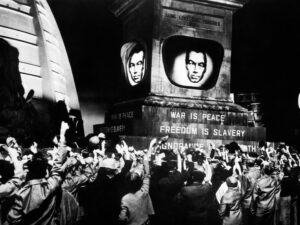
Orwell wrote the manuscript for 1984 over a span of about 18 months — June 1947 to December 1948 — on the island of Jura, in the Scottish Hebrides, between periods of hospitalization for tuberculosis.
- Life And Works Of George Orwell
- The Future in 1984 by George Orwell
- The Spike By George Orwell
- Winston’s transformation from “1984” by George Orwell
- Top 10 Reasons Why 1984 is a Must Watch
- In the novel 1984, George Orwell created a frightening depiction of what one-dimensional society might look like
- Why George Orwell’s 1984 was one of the most important and influential novels of our time.
- 1984 – George Orwell’s shocking novel set in a world of perpetual war, omnipresent government surveillance,
- Why Orwell’s 1984 Should Not Be Taught In Schools
- Propaganda… That’s the one word that best describes the world in Morris’s novel Nineteen E
- Should We Still Read Books
- Is Resisting the Government a Justifiable Act?
- Being a communist may be more beneficial than being a capitalist.
- Should we continue to lie to our children just so they can make friends and fit in?
- Over the last 3 years, the credit card industry has seen a substantial and steady increase in mergers
- Why Orwell’s 1984 is still relevant today.
- This essay presents an argument for the concept that George Orwell’s novel, 1984, is a tragedy.
- The Impact Of Technology On The Future of Communism
- Orwells 1984 is a warning of what happens when media, or propaganda, takes over.
- Why Orwell’s Social Drama 1984 Holds Up in the 21st Century
- Nineteen Eighty-Four is a novel that I would definitely reccomend to a friend
- This year, the author Winston Smith tries to escape from ‘Big Brother’ rule over Oceania
- More than 25 million Americans suffer from some type of addiction. Alcohol, drugs and smoking are the most
- I cant believe that GEICO continues to advertise low prices. I know for a fact that the insurance
- Why Orwell’s George Orwell ‘s 1984 Essay 1984 is a must-read even today.
- In George Orwell’s 1984, the government attempts to control the thoughts of its citizens by controlling their language
- The book 1984 by George Orwell seems to be a bit more than just a book. Orwell used his
- The novel 1984, by George Orwell, was written in 1948, a time when the world was greatly
- Don’t Let The Government Spy on You
- Should Chewing Gum Be Banned in Schools?
- Equality is a mirage because it threatens you, as it threatens all of us.
- 1984 Essay Topic by Stranger Than Fiction
- How 1984 can reflect upon our society today
- Finding and understanding the significance of quotes in George Orwell’s 1984 is crucial to understanding the novel’s underlying
- Nineteen Eighty-Four is a novel about Winston Smith and his battle with the Party in O
- How The Government Is Spying On You Right Now
- Why We Need to Work for the Government
- The Impact of Television on our Social Lives
- The Internet has Changed Everything
Get a Quality Essay on Your Topic
Topic Details
| Description: | Nineteen Eighty-Four is a dystopian social science fiction novel and cautionary tale written by English writer George Orwell. It was published on 8 June 1949 by Secker & Warburg as Orwell's ninth and final book completed in his lifetime. |
|---|---|
| Originally published: | June 8, 1949 |
| Pages: | 328 |
| Genre: | Dystopian, political fiction, social science fiction |
| Set in: | London, Airstrip One, Oceania |
| Characters: | Big Brother, Winston Smith, Julia, Emmanuel Goldstein, O'Brien, Syme |
| Famous quotes: | 'Who controls the past' ran the Party slogan, 'controls the future: who controls the present controls the past. '” |
| Reading time: | The average reader will spend 5 hours and 55 minutes reading this book at 250 WPM (words per minute). |
Other Topics
- Lord Of The Flies Essay Topics & Ideas
- Of Mice And Men Essay Topics & Ideas
- A Raisin In The Sun Essay Topics & Ideas
- Jane Eyre Essay Topics & Ideas
- Macbeth Essay Topics & Ideas

Hi, my name is Amy 👋
In case you can't find a relevant example, our professional writers are ready to help you write a unique paper. Just talk to our smart assistant Amy and she'll connect you with the best match.
Exploring Scientology: a Contemporary Analysis
This essay about Scientology explores its origins, doctrines, and societal impact. Founded by L. Ron Hubbard in the 20th century, Scientology blends spiritual principles with practical psychology, focusing on personal enlightenment through auditing sessions aimed at overcoming subconscious barriers known as engrams. Despite controversy surrounding its practices and organizational structure, Scientology continues to grow globally, influencing both individual adherents and broader cultural discourse. Scholars analyze Scientology through lenses of religious studies, sociology, and psychology, highlighting its evolution and relevance in contemporary society. Understanding Scientology requires careful consideration of its teachings, controversies, and ongoing scholarly debate regarding its impact on individuals and communities worldwide.
How it works
Scientology, a religious movement founded in the 20th century by L. Ron Hubbard, a prolific writer and thinker, has captivated global attention for its unique blend of spiritual principles and practical psychology. Rooted in the Latin “scio,” meaning “to know,” and the Greek “logos,” meaning “study of,” Scientology literally translates to the “study of knowing.” This linguistic foundation underscores its central tenet: the pursuit of self-awareness and spiritual enlightenment through structured practices.
Central to Scientology is the concept of auditing, a process akin to counseling or therapy aimed at overcoming negative experiences, or “engrams,” stored in the subconscious.
Through auditing sessions led by trained auditors, adherents seek to achieve spiritual clarity and personal growth, progressing through various levels on what is termed the “Bridge to Total Freedom.”
Critics of Scientology have raised significant concerns, ranging from allegations of financial exploitation and coercion within the organization to disputes over the validity of its claims and practices. Despite these controversies, Scientology continues to expand globally, maintaining a network of churches, missions, and community outreach programs.
From an academic standpoint, Scientology offers a compelling case study in the evolution of contemporary religious movements and their intersection with societal norms. Hubbard’s background in science fiction and exploration of human consciousness resonated with the cultural milieu of mid-20th century America, influencing Scientology’s development into a structured belief system with a global following.
Scholars analyze Scientology through various lenses, including religious studies, sociology, and psychology, exploring its organizational structure, belief system, and impact on individual adherents and broader society. While contentious, Scientology’s influence prompts ongoing scholarly inquiry and debate, reflecting its significance in contemporary religious and cultural discourse.
In conclusion, Scientology remains a subject of intense academic scrutiny and public interest due to its unique synthesis of spiritual principles, psychological methodologies, and organizational practices. As research and discourse continue, understanding Scientology necessitates nuanced examination of its doctrines, societal impact, and ongoing relevance in an evolving global landscape.
Cite this page
Exploring Scientology: A Contemporary Analysis. (2024, Jun 17). Retrieved from https://papersowl.com/examples/exploring-scientology-a-contemporary-analysis/
"Exploring Scientology: A Contemporary Analysis." PapersOwl.com , 17 Jun 2024, https://papersowl.com/examples/exploring-scientology-a-contemporary-analysis/
PapersOwl.com. (2024). Exploring Scientology: A Contemporary Analysis . [Online]. Available at: https://papersowl.com/examples/exploring-scientology-a-contemporary-analysis/ [Accessed: 25 Jun. 2024]
"Exploring Scientology: A Contemporary Analysis." PapersOwl.com, Jun 17, 2024. Accessed June 25, 2024. https://papersowl.com/examples/exploring-scientology-a-contemporary-analysis/
"Exploring Scientology: A Contemporary Analysis," PapersOwl.com , 17-Jun-2024. [Online]. Available: https://papersowl.com/examples/exploring-scientology-a-contemporary-analysis/. [Accessed: 25-Jun-2024]
PapersOwl.com. (2024). Exploring Scientology: A Contemporary Analysis . [Online]. Available at: https://papersowl.com/examples/exploring-scientology-a-contemporary-analysis/ [Accessed: 25-Jun-2024]
Don't let plagiarism ruin your grade
Hire a writer to get a unique paper crafted to your needs.

Our writers will help you fix any mistakes and get an A+!
Please check your inbox.
You can order an original essay written according to your instructions.
Trusted by over 1 million students worldwide
1. Tell Us Your Requirements
2. Pick your perfect writer
3. Get Your Paper and Pay
Hi! I'm Amy, your personal assistant!
Don't know where to start? Give me your paper requirements and I connect you to an academic expert.
short deadlines
100% Plagiarism-Free
Certified writers

COMMENTS
If you're looking for 1984 essay topics, you found the right page. See our original titles for research and discussion of Orwell's book 1984 essay examples. ... The Theme of History in "Brave New World" by Arthur Huxley and "1984" by George Orwell; Theme Analysis in "Zeitoun" by Dave Eggers and "1984" by George Orwell;
Suggested Essay Topics. PDF Cite. Part 1, Chapter 1. 1. Discuss the omnipresent posters of Big Brother in terms of his physical appearance as well as the phrase "Big Brother Is Watching You ...
Dive deep into George Orwell's 1984 with extended analysis, commentary, and discussion. ... Suggested Essay Topics. 1. Discuss the structure and composition of the "A", "B", and "C ...
2 pages / 691 words. George Orwell's novel 1984 has become a classic in the realm of dystopian literature, and its portrayal of a totalitarian society ruled by the enigmatic figure of Big Brother has left a lasting impact on readers. The concept of Big Brother is central to the... 1984 Big Brother. 4.
We can help you master your essay analysis of 1984 by taking you through the summary, context, key characters and themes. We'll also help you ace your upcoming English assessments with personalised lessons conducted one-on-one in your home or online! We've supported over 8,000 students over the last 11 years, and on average our students ...
Dive deep into George Orwell's 1984 with extended analysis, commentary, and discussion. ... Suggested Essay Topics Topics for Further Study ...
Thanks for exploring this SuperSummary Study Guide of "1984" by George Orwell. A modern alternative to SparkNotes and CliffsNotes, SuperSummary offers high-quality Study Guides with detailed chapter summaries and analysis of major themes, characters, and more. For select classroom titles, we also provide Teaching Guides with discussion and quiz questions to prompt student engagement.
The best study guide to 1984 on the planet, from the creators of SparkNotes. Get the summaries, analysis, and quotes you need. ... In-depth summary and analysis of every chapter of 1984. Visual theme-tracking, too. 1984: Themes. ... Orwell wrote and published essays on Aldous Huxley's Brave New World (1932), Jack London's The Iron Heel ...
Essays for 1984. 1984 essays are academic essays for citation. These papers were written primarily by students and provide critical analysis of 1984 by George Orwell. The Reflection of George Orwell; Totalitarian Collectivism in 1984, or, Big Brother Loves You; Sex as Rebellion; Class Ties: The Dealings of Human Nature Depicted through Social ...
Essays for 1984. 1984 essays are academic essays for citation. These papers were written primarily by students and provide critical analysis of 1984 by George Orwell. The Reflection of George Orwell; Totalitarian Collectivism in 1984, or, Big Brother Loves You; Sex as Rebellion; Class Ties: The Dealings of Human Nature Depicted through Social ...
This study guide and infographic for George Orwell's 1984 offer summary and analysis on themes, symbols, and other literary devices found in the text. Explore Course Hero's library of literature materials, including documents and Q&A pairs.
Critical Evaluation. Nineteen Eighty-Four is one of the keenest pieces of satire to be written in the twentieth century. It was George Orwell's last novel, written between 1946 and 1949 and ...
The novel, 1984, was published back in 1949 in June, is a dystopian fiction by George Orwell. It spellbound generations and it continues to do so since its first appearance. The novel was a myth breaker, but it also proved prophetic in giving out the truth and the predictions and forebodings of futuristic political instability, especially mass ...
14. Operators are online. 4,9. Of 5 average writers' score. One of the most iconic books of the 21st century, George Orwell's 1984 has long been a staple of English Language classrooms for many years. The novel was a dystopian story by writer George Orwell and was published in June 1949. Most of the themes in the novel are about the risk of ...
1984 Character Analysis. It quickly became a classic work of dystopian fiction that continues to resonate with readers today. The novel's protagonist, Winston Smith, is a complex character who struggles against the oppressive regime of the Party in a bleak and totalitarian future. In this essay, I will explore the multifaceted nature of Winston ...
As Orwell was writing 1984 in 1948, television was just emerging from the developmental hiatus forced upon the broadcasting industry by World War II. Many people were worried, in the late 1940s ...
1984 is a novel written by George Orwell. This novel is composed of many books. Each book has long chapters but it has wide imaginations. Winston Smith - A minor member of the ruling Party in near-future London, Winston Smith is a thin, frail, contemplative, intellectual, and fatalistic thirty-nine-year-old.
This essay about Scientology explores its origins, doctrines, and societal impact. Founded by L. Ron Hubbard in the 20th century, Scientology blends spiritual principles with practical psychology, focusing on personal enlightenment through auditing sessions aimed at overcoming subconscious barriers known as engrams.
Winston knows that life is not meant to be lived as it is in Oceania, and he tries to construct his ideal society out of fragments of dreams, nursery rhymes, and his love for Julia. Their affair ...